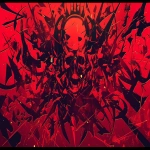Explore the Best AI Image Gallery
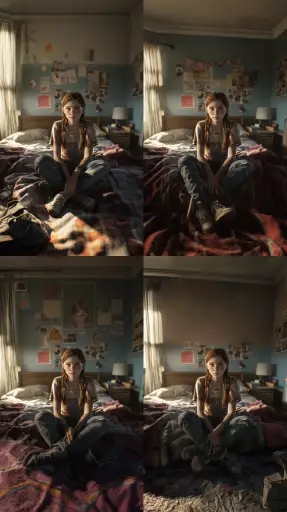
Beyond the Canvas: Blockchains Transformative Impact on the Creative Industry
The creative industry, a realm of boundless imagination and innovation, is constantly evolving. With the advent of blockchain technology, a revolutionary force is shaping the landscape, promising to empower creators, redefine ownership, and unlock unprecedented opportunities.
A New Paradigm for Creativity
Blockchain, a decentralized and immutable ledger system, offers a unique set of capabilities that can fundamentally transform how creative works are produced, distributed, and valued.
Revolutionizing Ownership and Copyright
One of the most significant impacts of blockchain is its ability to establish clear and verifiable ownership of digital assets, including creative works. By recording the provenance of a work on an immutable ledger, blockchain can prevent counterfeiting, piracy, and unauthorized distribution. This not only protects creators rights but also empowers them to control the circulation and licensing of their creations.
Smart Contracts: Automating Creativity
Smart contracts, self-executing agreements encoded on the blockchain, offer a revolutionary way to manage creative collaborations and transactions. Artists, musicians, and other creators can use smart contracts to define royalty structures, payment terms, and licensing agreements with precision and transparency. This automation streamlines processes, reduces disputes, and ensures fair compensation for all parties involved.
Decentralized Marketplaces: Empowering Creators
Blockchain-based marketplaces provide a decentralized platform for creators to connect directly with their audiences, bypassing traditional intermediaries and gatekeepers. These platforms enable artists to sell their work directly to fans, receive payments in cryptocurrencies, and retain greater control over their creative output. This fosters a more equitable and inclusive creative economy.
NFTs: A New Frontier in Digital Art
Non-fungible tokens (NFTs) have emerged as a transformative force in the digital art world. NFTs represent unique digital assets, such as artwork, music, or collectibles, on the blockchain. This creates verifiable ownership and scarcity, enabling artists to monetize their creations in entirely new ways.
Ethical Considerations: Navigating the Challenges
While blockchain offers immense potential for the creative industry, it also presents ethical challenges that must be carefully addressed.
Data Privacy and Security: Protecting Creative Information
Blockchains immutability can pose a challenge when it comes to data privacy and security. It is crucial to ensure that sensitive personal information and creative content are protected from unauthorized access and misuse.
Transparency and Accountability: Balancing Openness with Protection
Blockchain promotes transparency by recording all transactions on the ledger. However, its important to strike a balance between openness and protecting creators intellectual property rights.
Access and Inclusion: Bridging the Digital Divide
Blockchain technology should be accessible to all creators, regardless of their technical expertise or resources. Efforts must be made to bridge the digital divide and ensure equitable access to these transformative tools.
Future Trends: Shaping the Creative Landscape
The intersection of blockchain and the creative industry is constantly evolving. Several emerging trends are shaping the future of this dynamic space:
Metaverse Integration: Immersive Creative Experiences
Blockchain will play a key role in powering immersive metaverse experiences, enabling creators to build virtual worlds, host interactive events, and sell digital assets within these virtual spaces.
AI-Powered Creativity: Enhancing Artistic Expression
Artificial intelligence (AI) algorithms can be integrated with blockchain to enhance creative processes. AI can assist artists in generating ideas, composing music, or creating visual art, pushing the boundaries of artistic expression.
Decentralized Autonomous Organizations (DAOs): Collaborative Creativity
DAOs, community-owned and governed organizations, will enable creators to collaborate on projects, share resources, and make collective decisions in a transparent and decentralized manner.
Blockchain technology is poised to revolutionize the creative industry, empowering creators, fostering innovation, and redefining the relationship between artists and audiences. By embracing these transformative possibilities while navigating the ethical challenges responsibly, we can unlock a future where creativity flourishes in a more equitable and interconnected world.
](https://images.ai-img.art/thumbnails/150/4dfe5499f7f4f9e5aa1613199c58710634f2cba5f57ac7e6717c1d56a9864e1a.webp)



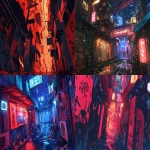


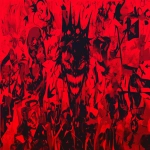





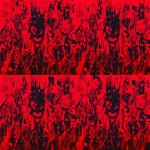


](https://images.ai-img.art/thumbnails/150/e407417f3921a9491278afc6484ec26f3ae374d4543e1a56898e8bcb1e41a0da.webp)

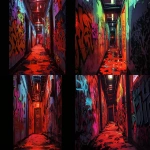



](https://images.ai-img.art/thumbnails/150/ed631f35091268316da1950d8f24949cf71c41220d75ddecc89232e1c28f3653.webp)
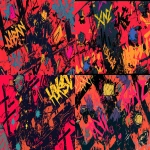



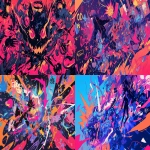


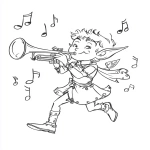




](https://images.ai-img.art/thumbnails/150/56d08b81b5991eca46f50c80b41db4e9ac06c775cbbf5138ea0734d93390316a.webp)
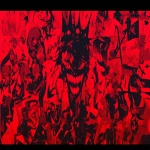


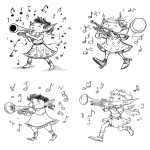



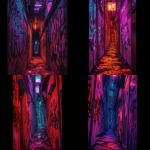

](https://images.ai-img.art/thumbnails/150/fd852e87169bf2f63982b31f7f16a8fa335d75d9536fd48c2b87c7d4b035fa7c.webp)
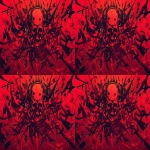
](https://images.ai-img.art/thumbnails/150/baf01e7f997f5bc030aa10831575d8b879a4a6755830df4bcd3dcc93346ef1dd.webp)

